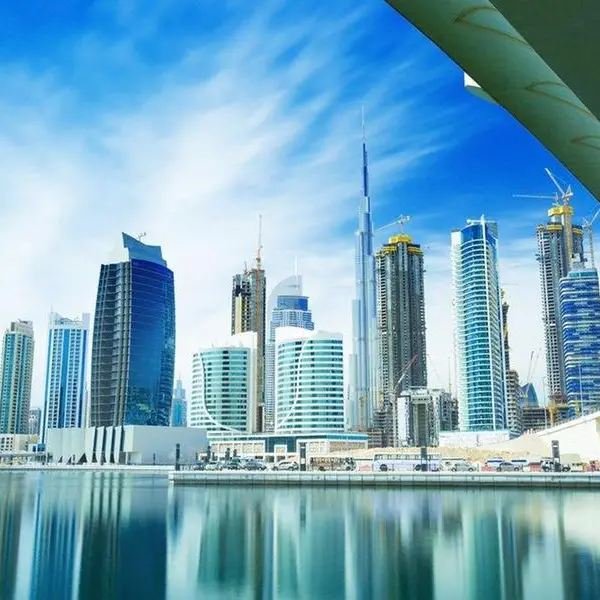PHOTO
Increasingly, hotel companies view monitoring their environmental footprint as both a standard practice and a necessity, says an official of one of the top 10 hospitality management schools worldwide that is celebrating almost a century of creating the hospitality leaders of tomorrow.
Paul Griep, Director of Industry & Alumni Relations, Hotelschool The Hague, outlined in an interview to the TTN, how the hospitality industry has made significant strides in adopting sustainable practices.
Excerpts
What are the key trends and developments in sustainability in the travel and hospitality sector?
When it comes to applying sustainable practices, our industry has seen some great development and progress within our industry.
For many years, critics drew attention to what they claimed to be a slow transition within the hospitality industry, often mentioned as “not genuine” and green-washed.
The dynamics within our Industry make it difficult to disrupt the status-quo, this mostly due to the many stakeholders (investors, management companies, guests) involved.
We have, however, seen some positive developments; especially in the "E" of ESG. More and more hotel companies see monitoring their environmental footprint as a "standard" and a "must" these days, automatically leading to initiatives and practices that accelerate sustainability.
Renewable energy, water consumption, smart technology and food waste are areas where we are taking fast, positive strides. EU and US regulations, in combination with the increased awareness and decision making of consumers/guests, brings our industry to a pivotal point: one with investors that are more inclined to invest into sustainable buildings, construction and building materials.
This important "tipping point" is then supported by hotel chains who welcome and execute the sustainable practices that they are so busy developing and implementing.
What do you see as the core focus when it comes to investment in sustainability/sustainable tourism in hospitality and travel in 2024 and beyond?
When it comes to investments, the main focus is on buildings, construction and technology.
This is simply because it is the most impactful. Innovations and concepts that have a proven impact in the area of sustainability, in combination with a positive ROI, are what investors are typically looking for.
These innovations target not only the "bigger" picture, such as real estate (construction materials, machinery etc.), but also "smaller" technological inventions which lead to savings and thus present a "win" for the investor.
The mindset, the practices and the way we treat "sustainability" has shown great strides.
I do believe, however, that our industry is in need of a major disruption. Similar to how hotel chains upgraded the discipline of revenue management in the 2000's to board-room level, we now see a similar trend in how we address sustainability.
Sustainability is growing from "someone doing this next to their current job" to a full department, company-wide approach, whereby it becomes an integrated main component of the company’s mission and vision.
A real disruption, however, hasn’t yet taken place. A drastic, daring, and especially disruptive approach leading to a renewed way of thinking and acting for the common good is what our industry needs.
A so-called "reboot" on how corporations, governments and consumers approach sustainability is needed in order to tackle society's greatest challenge. This was the clear message coming from The Sustainable Development Goals Summit in New York.
I personally cannot wait to see which hotel chain will be the first to take this "bold" step.
What role does technology play in driving innovation and pushing sustainability in the industry?
Technology is without a doubt crucial when it comes to driving innovation. Some great concepts have been developed and implemented which undoubtedly have positive impacts on sustainability.
Some innovations, however, have led to lower satisfaction levels among guests. The unknown, the frustration around "something not working properly", or the feeling of the guest who “now needs to do everything him/herself “is a difficult trajectory to navigate.
Hotel chains need to find the balance between using technology to increase efficiency, ROI and cost control, whilst at the same time ensuring that our guests continue to receive the "personal touch", the personalised service and the perception of being treated in the most special way.
It is evident that we see a gap in the target markets when it comes to applying and using technology. Brands attracting multiple generations face this challenge of providing the necessary "high touch" in a renewed "high tech" and especially "high self-service" world.
Whereas we see great strides in the "E" component of ESG, I believe there is still a lot of work to be done in the area of social sustainability.
Inequality remains a big issue, not only in the world, but especially in our industry. With large groups of people becoming more and more aware of this situation, it is evident that it must be addressed, and yet remains extremely challenging for companies to tackle this.
A disruption, a changed way of thinking, is needed to drastically improve this situation in our industry.
Another pitfall our Industry continues to face is the "greenwashing" aspect around sustainability. We see true and genuine initiatives and developments which we all welcome. There are, however, still plenty of parties using practices that are insignificant, irrelevant, of little impact, or simply not true.
Communicating the right practices around sustainability from a hotel chain's perspective is challenging as it needs transparency, honesty and pride whilst also requiring humility to avoid critical push back.
One hotel chain has appointed a VP Sustainability Sales, showcasing the need to communicate the right message with the right intentions to all stakeholders involved; certainly, an interesting, innovative and impactful approach.
Copyright 2024 Al Hilal Publishing and Marketing Group Provided by SyndiGate Media Inc. (Syndigate.info).





















